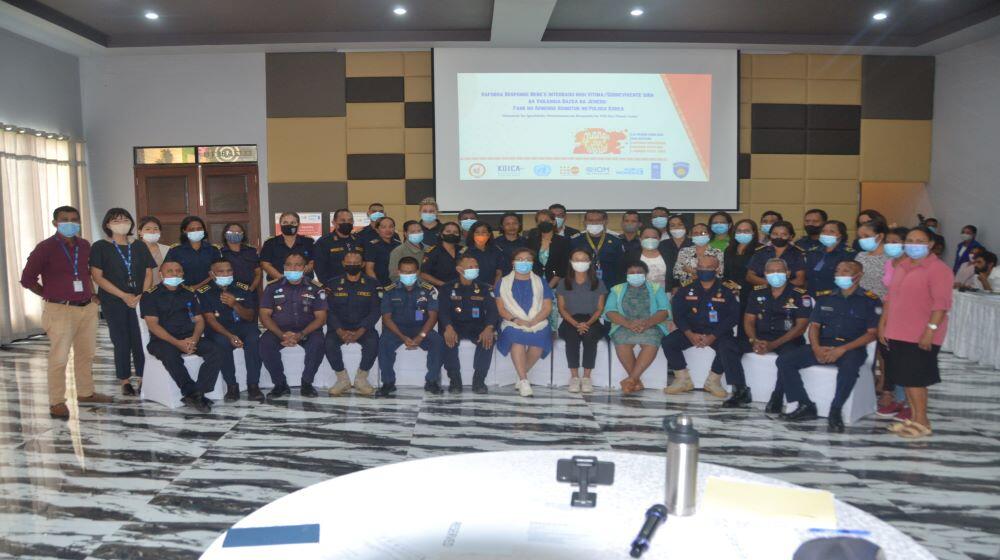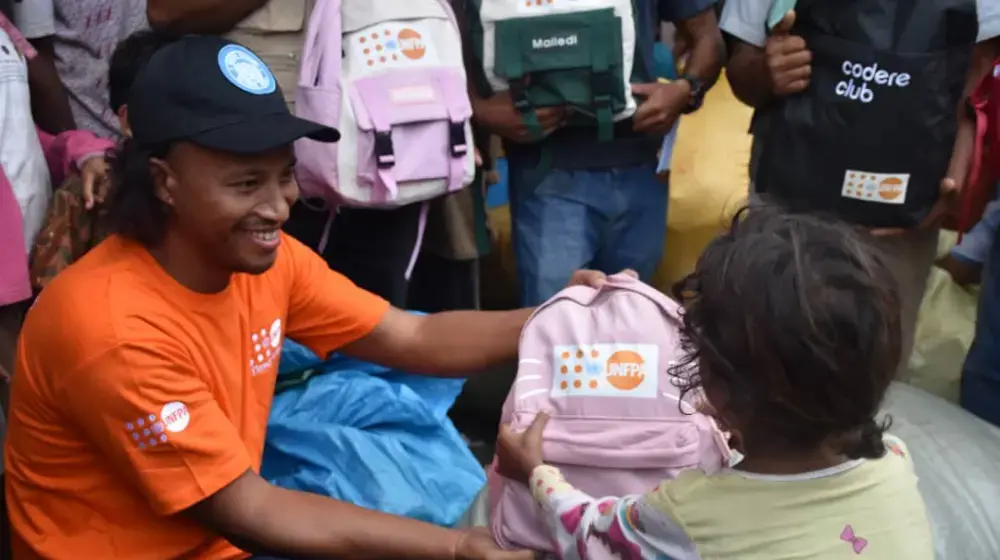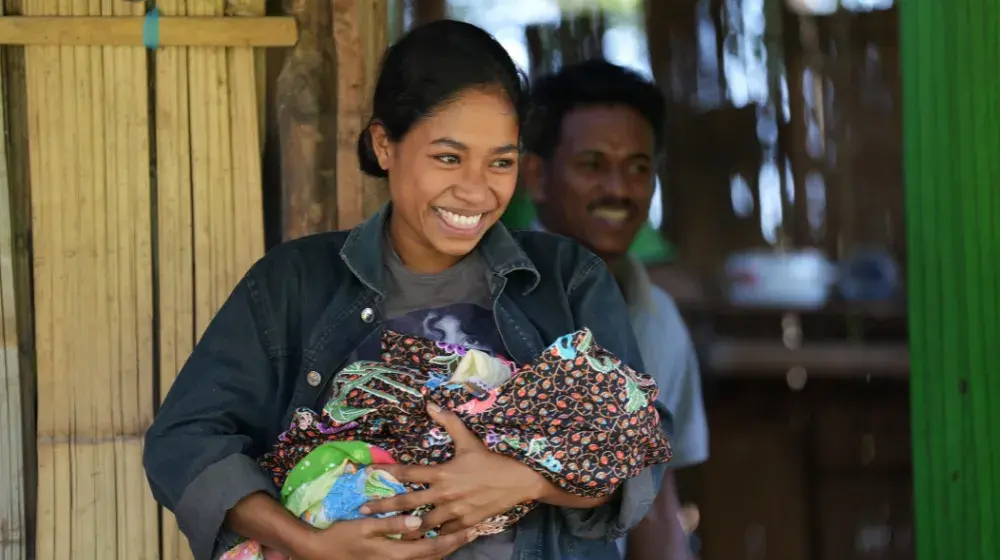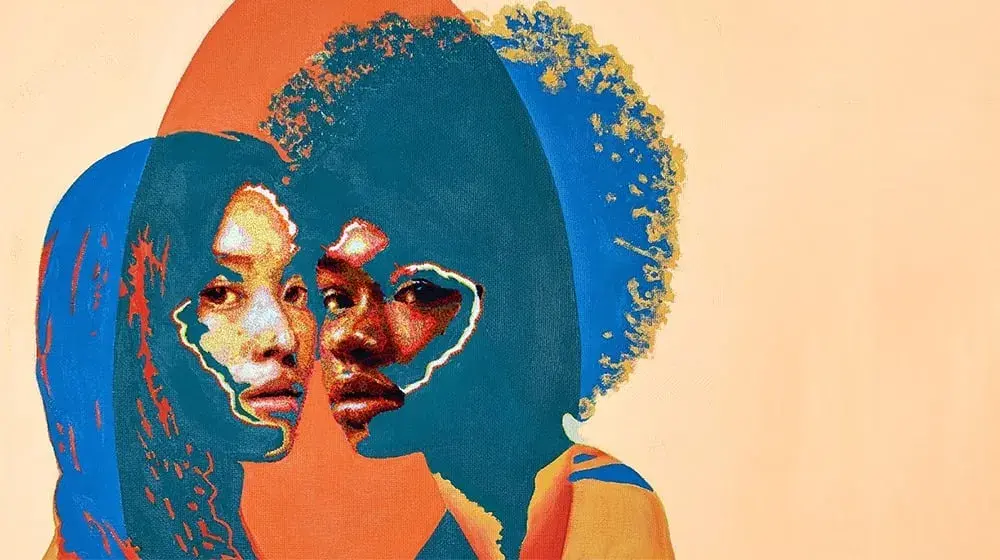Dili, December 15, 2021 – UNFPA Timor-Leste and UNDP together with Korean National Police University (KPNU), along with its generous partners, including Ministry of Health, National Police of Timor-Leste (PNTL), Timor-Leste government ministries, Municipal Authorities of Dili, Baucau, Covalima and Oecusse, and CSOs, hosted a two-day workshop on strengthening the integrated survivor-centered response to gender-based violence (GBV) at City 8 Hotel in Dili from December 9 to 10.
The hybrid (virtual and physical) workshop, organized through the support of the Korean International Cooperation Agency (KOICA) and UN joint program dubbed Together for Equality: Preventing and Responding to Gender-Based Violence in Timor-Leste to provide coordinated support to survivors of GBV while marking 16 Days of Activism against gender-based violence.
Over 70 participants from The National Police of Timor-Leste (PNTL), Korean National Police University (KNPU), Ministry of Health, Ministry of Interior, Ministry of Social Solidarity and Inclusion (MSSI), Secretariat of State on Equality and Inclusion (SEII), Municipal Authorities of Dili, Baucau, Covalima and Oecusse, UN agencies and Civil Society Organizations (CSOs) attended the workshop.
Speaking during the opening session, Ms. Eunju Cha, KOICA Country Director, reiterated the need for coordination among stakeholders to address gender based violence issues.
“Survivors of sexual and gender-based violence need multi-sectoral help from health and psychosocial support to legal and police services. To provide such holistic services to the survivors, close coordination among identified partners is vital.
“KOICA is delighted to collaborate with Korean National Police University for “Together for Equality” project to share Korea’s integrated GBV response mechanism, Sunflower Center, which has been successfully implemented and institutionalized for over two decades,” stated Ms. Eunju Cha.
UNFPA Timor-Leste Country Representative, Ronny Lindstrom, in his closing remarks observed that health services are often the first and sometimes the only point of contact with survivors for identifying sexual and gender based violence.
“UNFPA in collaboration with Ministry of Health will establish Safe Spaces in Community Health Centers with essential services and support strengthening the coordination of GBV response network including establishment of the medico-legal committee to prevent further violence and better response to GBV survivors,” said Ronny Lindstrom.
Highlighting the importance of a coordinated multi-sectoral response to GBV cases, Munkhtuya Altangel, UNDP resident representative, on behalf of UN agencies stated that different stakeholders working together will improve safety and support for GBV victims.
“A well-coordinated multi-sectoral response to GBV cases leads to an increased level of safety and support for GBV victims and reduce the risk of secondary victimization, through an effective, immediate, and consistent services network,” said Munkhtuya Altangel.
“The Korean one-stop service modality located in a hospital is very similar to the Timor-Leste’s Fatin Hakmatek (Safe Spaces). The exchange with the Korean Police and health practitioners is widely applicable to Timor-Leste and can help in overcoming the challenges and reforming the system.”
For more information, contact:
Suleiman Okoth
Communications and Programme Support Specialist
United Nations Population Fund (UNFPA), Timor-Leste
UN House, Caicoli Street, Dili, Timor-Leste
Mobile: +67075169796
WhatsApp: +254 780534026
Email; okoth@unfpa.org





